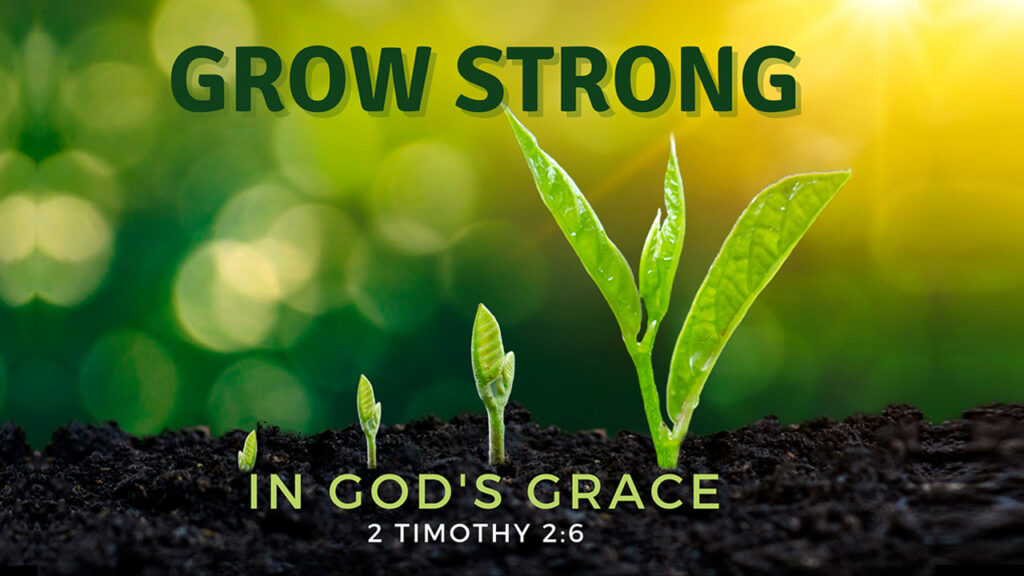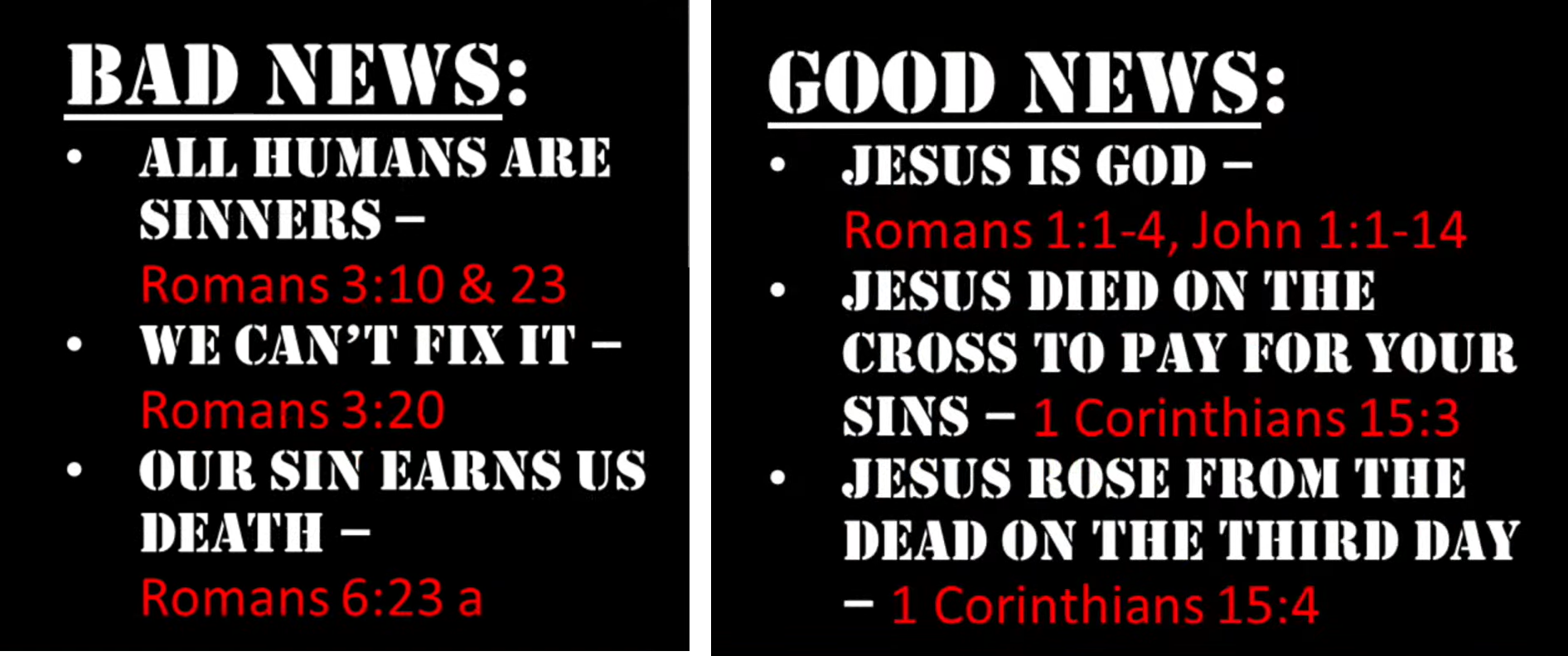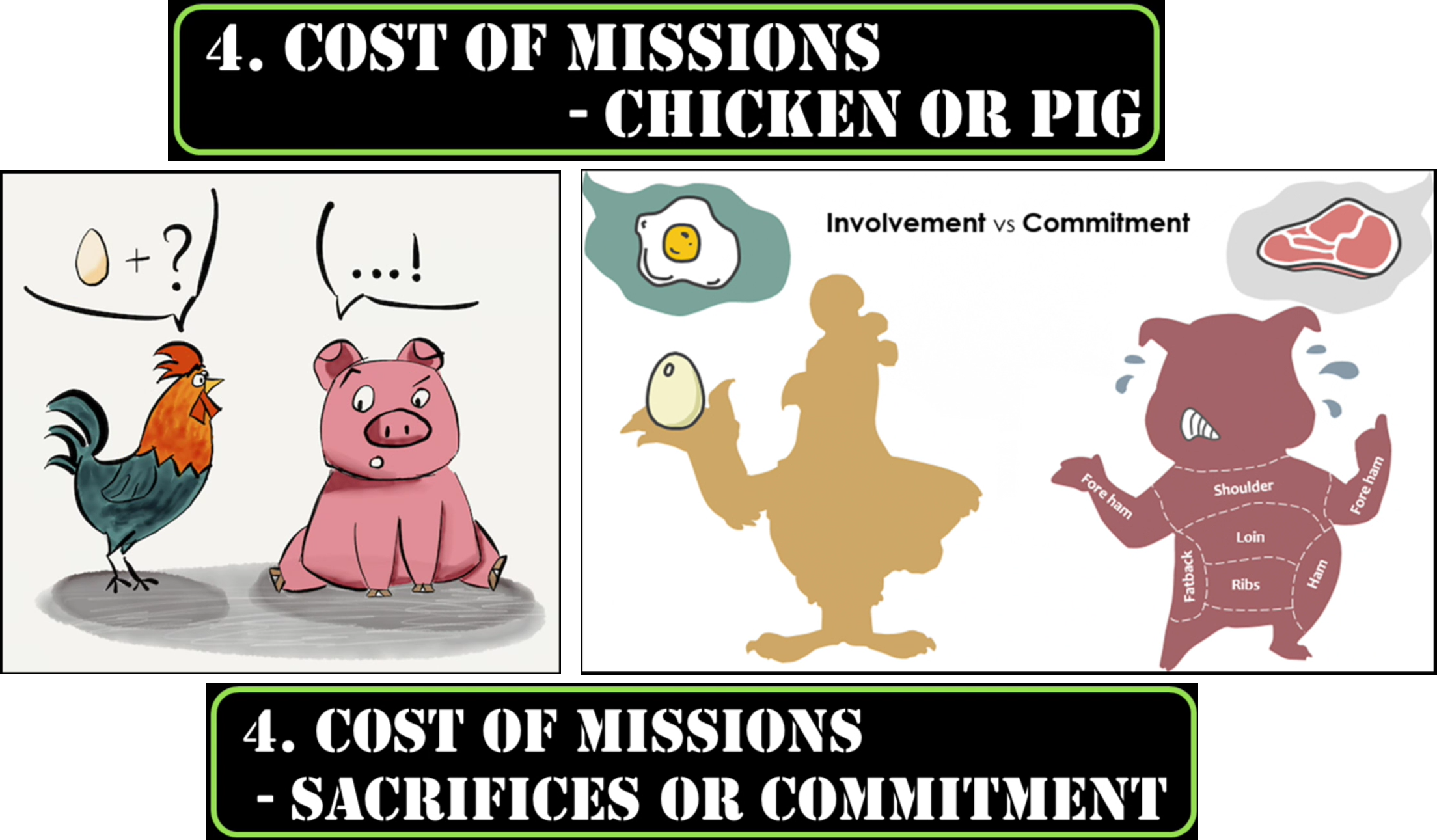
Grow Strong in God’s Grace – Wk 28

Learning How to be a Faithful Farmer for God’s Harvest!
A Life that Witnesses to the Transformative Power of Faith!
(Part 1 of 2 of Series Conclusion)
Hebrews 12:1-3 (NASB)
Therefore, since we have so great a cloud of witnesses surrounding us, let us also lay aside every encumbrance and the sin which so easily entangles us, and let us run with endurance the race that is set before us, fixing our eyes on Jesus, the author and perfecter of faith, who for the joy set before Him endured the cross, despising the shame, and has sat down at the right hand of the throne of God. For consider Him who has endured such hostility by sinners against Himself, so that you will not grow weary and lose heart.
If you started reading your Bible in Hebrews 12, you would automatically ask yourself, “Who are the people in this ‘so great a cloud of witnesses surrounding us’?” The answer to this question is found in Hebrews 11, so let’s review the inaugural class of the great cloud of witnesses, and see what we have learned from each of them over the last 6 months of sermons:
- Abel and Enoch taught us how faith pleases God (4-6).
- Noah taught us how faith gives substance to your life (7).
- Abraham taught us how faith trusts God’s promises (8-10).
- Sarah taught us how faith bears fruit (11-12).
- Abraham taught us how can pass the test of faith (17-19).
- Isaac taught us how faith blesses the next generation (20).
- Jacob taught us how faith gives us a limp (21).
- Joseph taught us how faith lifts us out of the pits (22).
- Moses taught us how faith makes us humble (23-29).
- Joshua taught us how faith toots God’s horn (30).
- Rahab taught us how faith saves the day (31).
- Gideon taught us how faith takes God at His Word (32-40).
- Barak taught us how faith invites partnership (32-40).
- Samson taught us how faith invites us to be weak (32-40).
- Jephthah taught us how faith overcomes obstacles (32-40).
- David taught us the faith of a person after God’s own heart (32-40).
- Samuel taught us how faith listens and obeys (32-40).
- The prophets taught us how faith calls people home (32-40).
- In verses 33-40, other members of the inaugural class of the great cloud of witnesses are alluded to, various judges, kings, and prophets of Israel’s history, but specifically Daniel, Shadrach, Meshach, Abed-nego, Hezekiah, Isaiah, Jeremiah, Elijah, Elisha, Uriah, Zechariah, and possibly even foreshadows of John the Baptist and others found in the New Testament.
The emphasis of Hebrew 11 is faith. Each of these people had a relationship with God. How they believed not only affected their own lives, but each of their stories sent a ripple effect through history. That’s the power of faith! There is an important pattern found between the transforming stories of faith, found in Hebrews 11, and the exhortation of Hebrews 12:1-3. It is the biblical rhythm of “indicative-imperative,” simply meaning, “IF you believe this about God (the indicative about faith), THEN live this way (the imperative of faith).” This is what it means to believe; there is no false dichotomy between the indicative and the imperative.
Hebrews 12 starts with a “therefore” and the common thing you do when you see a “therefore” in Scripture is to ask yourself, “What is it there for?” Don’t devoid God’s commands of their meaning, nor reject the grace being extended to you, by just reading what comes next. Instead, go back and see what the Bible teaches you (the indicative of the imperative). In the Bible, God’s grace (His choosing) always precedes the call of obedience (God’s divine demands upon His children); in other words, “Relationship comes before responsibilities!” If you don’t get this, you can easily become a legalistic Christian (works-based religion), insecure and unstable because your focus is on your own ability to obey the commands of God. If you give yourself to this misapplication of Scripture (imperatives devoid of indicatives, or responsibilities without relationship), then all your effort will miss the mark and you will not know the heart of God. How can any righteous act please God if it is lacking love? Hebrews 11:6 teaches this clearly, “And without faith it is impossible to please Him, for he who comes to God must believe that He is and that He is a rewarder of those who seek Him” (cf. 1 Corinthians 13:1-3).
God does not call you to strive for acceptance through your own efforts; rather, He invites you to rest in His relationship with you. It is only by grace that you are even in a relationship with Him, nevertheless, able to live according to His divine responsibilities as a member of His family. Allow me to be clear, grace is not opposed to the effort you put into your relationship, but grace is opposed to merit – you think you can earn anything by your efforts. Hebrews 12:1-3 transitions from the previous chapter’s descriptions of faith to the responsibilities of faith. Hebrews 12 leans heavily on the faith relationship between God and His children. We have been investing these last six months to truly know the heart of God; to know He is good and that we can trust Him in all our circumstances. Who was the God of these people? What does it look like to live by faith; to believe? How does God transform stories through a faith relationship with Him? Can I grow strong in God’s grace and reap a harvest of praise to the glory of God?
God calls by grace – you are His by His loving choice! Relationship precedes but does not preclude responsibilities. We see this best illustrated for us in the most ancient of places: the Ten Commandments (the Decalogue). For many, it is whitewashed as moral decrees to be obeyed to be found acceptable in God’s eyes. But I want to illuminate the most important part of the Ten Commandments; it is the word of grace that comes before the responsibilities of relationship. What is the first thing God declares in Exodus 20 before launching into His covenantal expectations? In Exodus 20:2, God says, “I am the Lord your God, who brought you out of the land of Egypt, out of the house of slavery.” This is a word of grace where God is saying, “I chose you! I rescued you from slavery and death, not because you deserved it, but because I love you! Therefore, as my dearly beloved children, follow these 10 commandments and you will grow strong in grace (our relationship), bearing the good fruit of my grace, living in such a way that proves to the world that you belong to me!” Do you see the indicative-imperative pattern? Never forget that every promise of God comes with a praxis to live.
God has established your identity in Him, now live like it! This is the teaching of the fruit-bearing branch abiding in the vine of Jesus Christ, found in John 15:7-11, and 16:
If you abide in Me, and My words abide in you, ask whatever you wish, and it will be done for you. My Father is glorified by this, that you bear much fruit, and so prove to be My disciples. Just as the Father has loved Me, I have also loved you; abide in My love. If you keep My commandments, you will abide in My love; just as I have kept My Father’s commandments and abide in His love. These things I have spoken to you so that My joy may be in you, and that your joy may be made full. … You did not choose Me but I chose you, and appointed you that you would go and bear fruit, and that your fruit would remain, so that whatever you ask of the Father in My name He may give to you.
This is who you are, as the beloved of Jesus taught in 1 John 3:1-3:
See how great a love the Father has bestowed on us, that we would be called children of God; and such we are. For this reason the world does not know us, because it did not know Him. Beloved, now we are children of God, and it has not appeared as yet what we will be. We know that when He appears, we will be like Him, because we will see Him just as He is. And everyone who has this hope fixed on Him purifies himself, just as He is pure.
Do you remember the first time you were chosen for something? Maybe it was a glance across the classroom, the request for a dance, the acceptance to a college, the selection for promotion at work, or the diamond engagement ring. How did that make you feel?
Being chosen changes everything! Grace changes everything! Let us grow strong in God’s grace today so that we may witness to the world the transformative power of faith! How? By extending the same grace to others, just as Jesus commanded a new command in John 13:34-35, “A new commandment I give to you, that you love one another, even as I have loved you, that you also love one another. By this all men will know that you are My disciples, if you have love for one another.”
How do you witness to the transformative power of faith in your everyday life?
- When you give generously without thought of getting anything in return.
- When you love for the benefit of the other and not for yourself.
- When you forgive a debt.
- When you invite someone to go for a walk or to sit around the fire together.
- Whenever you break bread with some around table fellowship.
- When you send a card, make a phone call, send a text of encouragement.
- When you make a visit or deliver a meal.
I try to teach my children to give good gifts; not to give away something they don’t need or want, but to give their very best. Love doesn’t give spare change; it gives the best of the first fruits. This is the principle behind how we give back to God. All things come from Him and all that we have is His; we are not giving anything to Him, we are returning it to Him because He is the source of abundance! Love doesn’t keep its commitment just when it feels good, because it’s easy, or because it’s reciprocated; love “bears all things, believes all things, hopes all things, endures all things” (1 Corinthians 13:7).
The faith stories of God’s people summarized in Hebrews 11 inform our lives and our lifestyles by calling us to live according to Hebrews 12:1-3:
Therefore, since we have so great a cloud of witnesses surrounding us, let us also lay aside every encumbrance and the sin which so easily entangles us, and let us run with endurance the race that is set before us, fixing our eyes on Jesus, the author and perfecter of faith, who for the joy set before Him endured the cross, despising the shame, and has sat down at the right hand of the throne of God. For consider Him who has endured such hostility by sinners against Himself, so that you will not grow weary and lose heart.
Paul echoed this in Philippians 2:1-4:
Therefore if there is any encouragement in Christ, if there is any consolation of love, if there is any fellowship of the Spirit, if any affection and compassion, make my joy complete by being of the same mind, maintaining the same love, united in spirit, intent on one purpose. Do nothing from selfishness or empty conceit, but with humility of mind regard one another as more important than yourselves; do not merely look out for your own personal interests, but also for the interests of others. [5-11 then give the example of Jesus in the Christ Hymn]
Take the next month and review Hebrew 11, and the lessons from the transforming stories of faith we have learned this last six months. Learn from these men and women of faith how you can be a witness to the transformative power of faith in your life. This is the faith we get to live when we are set free from sin to live with our eyes on Jesus:
- a faith, which pleases God.
- a faith, which gives substance to your life.
- a faith, which trusts God’s promises.
- a faith, which bears fruit.
- a faith, which passes the test.
- a faith, which blesses the next generation.
- a faith, which gives us a limp.
- a faith, which lifts us out of the pits.
- a faith, which makes us humble.
- a faith, which toots God’s horn.
- a faith, which saves the day.
- a faith, which takes God at His Word.
- a faith, which invites partnership.
- a faith, which invites us to be weak.
- a faith, which overcomes obstacles.
- a faith, which demonstrates God’s own heart.
- a faith, which listens and obeys.
- a faith, which calls people home.
If you minimize the Bible to a moralistic rule book filled with one-dimensional people, then you miss God’s extravagant love and scandalous grace. If you miss love and grace, then you miss Jesus, who is the only way to know the Father (John 14:6). Jesus didn’t die on the cross so that you can make a good human effort at living according to the Ten Commandments, doing and saying all the right things by your own strength. Jesus did not die on the Cross so that you can go around living a good moralistic life and be filled with pride and self-righteousness. Jesus died on the Cross so that you could be free from sin to love others as God first loved you; not to earn anything, but from of a transformed heart, striving to be like Him and like those who have come before us to show us the way of faith – the great cloud of witnesses. Jesus gives us our right standing by grace – a relationship with God that comes with the responsibilities of righteousness! As Paul taught in 2 Corinthians 5:21, “He made Him who knew no sin to be sin on our behalf, so that we might become the righteousness of God in Him.” This is our calling; we have been made new by His love to join with Jesus in His ministry of love to reconcile all people to Him (2 Corinthians 5:17-20).
In your story, as in every story, grace matters! Do you remember when God chose you?
Today, God is calling to you, choosing you, extending His love to you. Trust Him today and experience the joy of why Christ endured the cross and despised the shame. For the joy set before you, live strong in God’s grace and reap a harvest of praise to the glory of God. Never forget, that what we do in this life is a witness to what Christ did to give us the life we live, once for all!
What does your transforming story of faith look like? Jesus is interceding for you at the right hand of the Father, so do not grow weary and do not lose heart!
YOU CAN LISTEN TO THIS MESSAGE BY CLICKING HERE.
In part 2 of the conclusion, schedule for November 19, we will learn how we can be inducted into the next class of the great cloud of witnesses. Live strong in God’s grace today by applying the faithful strategy of the hardworking farmer!
Read more...

Grow Strong in God’s Grace – Wk 27

Learning How to be a Faithful Farmer for God’s Harvest!
A Faith that Calls People Home!
Hebrews 11:32-40 (NASB)
God is in the business of transforming stories through the gospel of Jesus Christ. We are to grow strong in God’s grace as active participants in the world He created. God has entrusted His creation to His people to work as His Harvest workers – “All the world’s a field, and all the disciples of Jesus Christ merely farmers!” Therefore, let’s be faithful farmers by following the four-step strategy of a hard-working farmer: 1) cultivate people with faith; 2) sow the good seed of God’s grace (the gospel) into their hearts and minds; 3) care for them as their stories are transformed into fruit-bearing plants; and 4) reap a harvest of praise as the church of Jesus Christ. This strategy must be empowered by the Holy Spirit because apart from God we cannot bear any good fruit (John 15:5). Therefore, harvest workers of God’s kingdom are called to grow strong in God’s grace. Let’s take the first step by learning from the transforming stories of the Hall of Faith, found in Hebrews 11.
STEP #1 OF THE FARMER’S STRATEGY: CULTIVATE THE SOIL WITH FAITH
Today’s story is about the prophets of God, who are named explicitly as an office, and then many of their number are alluded to in Hebrews 11:32-40:
And what more shall I say? For time will fail me if I tell of Gideon, Barak, Samson, Jephthah, of David and Samuel and the prophets, who by faith conquered kingdoms, performed acts of righteousness, obtained promises, shut the mouths of lions [the prophet Daniel in Daniel 6], quenched the power of fire [the prophet Daniel’s entourage of Shadrach, Meshach, and Abed-nego in Daniel 3], escaped the edge of the sword, from weakness were made strong [Hezekiah recovered from sickness by the Word of the Lord through the prophet Isaiah in Isaiah 38], became mighty in war, put foreign armies to flight. Women received back their dead by resurrection [the prophet Elijah with the widow of Zarephath in 1 Kings 17 and the prophet Elisha with the Shunammite woman in 2 Kings 4]; and others were tortured [the prophet Jeremiah in Jeremiah 20], not accepting their release [the prophet Jeremiah in Jeremiah 40], so that they might obtain a better resurrection; and others experienced mockings and scourgings, yes, also chains and imprisonment. They were stoned [Stephen in Acts 7], they were sawn in two [the tradition of the prophet Isaiah’s death by King Manasseh], they were tempted, they were put to death with the sword [the prophet Uriah in Jeremiah 26]; they went about in sheepskins, in goatskins [Elijah, Zechariah, and John the Baptist], being destitute, afflicted, ill-treated (men of whom the world was not worthy), wandering in deserts and mountains and caves and holes in the ground. And all these, having gained approval through their faith, did not receive what was promised, because God had provided something better for us, so that apart from us they would not be made perfect. [emphasis added]
The prophets are found throughout the Bible, as I briefly illustrated in the above passage. An excellent definition of a prophet is “a person inspired to proclaim or reveal divine will or purpose.”[1] I prefer this definition because it is inclusive to both forthtelling and foretelling. Today, a prophet is often, and wrongly, limited to the activity of divinely forecasting the future (foretelling), but there is so much more to it – prophecy is a calling forth of God’s will in a specific time and place, with a divine purpose in mind. When done properly, preaching is a prophetic work of the Spirit, in the forthtelling way, regardless of whether there is foretelling. That is important to realize as we learn from the prophets a faith that calls people home. We cannot foretell who God has chosen, and who will be saved, but we are called to forthtell to all, for Jesus died “once for all,” as Hebrews 7:25-27 proclaims:
Therefore He is able also to save forever those who draw near to God through Him, since He always lives to make intercession for them. For it was fitting for us to have such a high priest, holy, innocent, undefiled, separated from sinners and exalted above the heavens; who does not need daily, like those high priests, to offer up sacrifices, first for His own sins and then for the sins of the people, because this He did once for all when He offered up Himself.
It is our calling to make known the great love of God, made accessible through Jesus Christ (John 3:16). Let’s take the next action step so that we may learn how to have a faith that calls people to faith in Jesus Christ, calling them home to a right relationship with God through the forgiveness of their sins.
STEP #2 OF THE FARMER’S STRATEGY: SOW THE GOOD SEED OF GOD’S GRACE
The prophetic ministry is important to the church of Jesus Christ today, as Ephesians 4:11 includes them in the list of gifts to the church that Jesus gave as He ascended to the right hand of the Father, “He gave some as apostles, and some as prophets, and some as evangelists, and some as pastors and teachers, for the equipping of the saints for the work of service, to the building up of the body of Christ.” All five spiritually-gifted persons has the same purpose – to build the body of Christ in love through the equipping of the saints. Therefore, we cannot see “prophets” as a ministry of the past; they are a current reality, a function of the eldership of the church today – we must hear the message of the prophets, which has been unchanging through the millennia: “Come Home – Return to Me!” A powerful example of this is from Joel 2:12-13:
“Yet even now,” declares the Lord, “Return to Me with all your heart, and with fasting, weeping and mourning; and rend your heart and not your garments.” Now return to the Lord your God, for He is gracious and compassionate, slow to anger, abounding in lovingkindness and relenting of evil.
Other examples of the prophets declaring this message are the following:
- Jeremiah 4:1-2: “‘If you will return, O Israel,’ declares the Lord, ‘Then you should return to Me. And if you will put away your detested things from My presence, and will not waver, and you will swear, ‘As the Lord lives,’ In truth, in justice and in righteousness; then the nations will bless themselves in Him, and in Him they will glory.’”
- Ezekiel 33:11: “Say to them, ‘As I live!’ declares the Lord God, ‘I take no pleasure in the death of the wicked, but rather that the wicked turn from his way and live. Turn back, turn back from your evil ways! Why then will you die, O house of Israel?’”
- Hosea 12:6: “Therefore, return to your God, observe kindness and justice, and wait for your God continually.”
This is the same message of the last prophet of the Old Covenant, John the Baptist, who forthtold in Matthew 3:1-3:
Now in those days John the Baptist came, preaching in the wilderness of Judea, saying, “Repent, for the kingdom of heaven is at hand.” For this is the one referred to by Isaiah the prophet when he said, “The voice of the one crying in the wilderness, ‘Make ready the way of the Lord, make His paths straight!’”
As we transition to the next action step, be clear that John the Baptist and Jesus the Christ fulfilled the message of the prophets, as foretold by Malachi in Malachi 3:1-7:
“Behold, I am going to send My messenger, and he will clear the way before Me. And the Lord, whom you seek, will suddenly come to His temple; and the messenger of the covenant, in whom you delight, behold, He is coming,” says the Lord of hosts. “But who can endure the day of His coming? And who can stand when He appears? For He is like a refiner’s fire and like fullers’ soap. He will sit as a smelter and purifier of silver, and He will purify the sons of Levi and refine them like gold and silver, so that they may present to the Lord offerings in righteousness. … For I, the Lord, do not change; therefore you, O sons of Jacob, are not consumed. From the days of your fathers you have turned aside from My statutes and have not kept them. Return to Me, and I will return to you,” says the Lord of hosts. “But you say, ‘How shall we return?’
STEP #3 OF THE FARMER’S STRATEGY: CARE FOR THE MATURING PLANT
Did you hear the God’s emphasis in Malachi 3? From the days of their forefathers, from the beginning of their rebellion, God has been calling His people to return to Him – to come Home! We hear this longing in Jesus’ words in Luke 13:34, “O Jerusalem, Jerusalem, the city that kills the prophets and stones those sent to her! How often I wanted to gather your children together, just as a hen gathers her brood under her wings, and you would not have it!” Therefore, Jesus intentionally added His voice to the tradition of the prophets, in Matthew 4:12-17:
Now when Jesus heard that John had been taken into custody, He withdrew into Galilee; and leaving Nazareth, He came and settled in Capernaum, which is by the sea, in the region of Zebulun and Naphtali. This was to fulfill what was spoken through Isaiah the prophet: “The land of Zebulun and the land of Naphtali, by the way of the sea, beyond the Jordan, Galilee of the Gentiles – the people who were sitting in darkness saw a great light, and those who were sitting in the land and shadow of death, upon them a light dawned.” From that time Jesus began to preach and say, “Repent, for the kingdom of heaven is at hand.”
This is the gospel message by which we are saved, as we see clearly portrayed in Jesus’ prophetic ministry to the rebellious and far away, in Matthew 11:20-30:
Then He began to denounce the cities in which most of His miracles were done, because they did not repent. “Woe to you, Chorazin! Woe to you, Bethsaida! For if the miracles had occurred in Tyre and Sidon which occurred in you, they would have repented long ago in sackcloth and ashes. Nevertheless I say to you, it will be more tolerable for Tyre and Sidon in the day of judgment than for you. And you, Capernaum, will not be exalted to heaven, will you? You will descend to Hades; for if the miracles had occurred in Sodom which occurred in you, it would have remained to this day. Nevertheless I say to you that it will be more tolerable for the land of Sodom in the day of judgment, than for you.” At that time Jesus said, … Come to Me, all who are weary and heavy-laden, and I will give you rest. Take My yoke upon you and learn from Me, for I am gentle and humble in heart, and you will find rest for your souls. For My yoke is easy and My burden is light.”
The message is to come Home to a right relationship with God through Jesus. Home is a place of rest, safety, peace, joy, and comfort – all the promises of God are ours in Christ! Without the call of the prophet, there could be no way for the wayward to return home, which means there would be no way for any of us to have salvation in the first place; nevertheless, mature into fruit-bearing trees who reap a harvest of praise. Let’s turn to the last action step.
STEP #4 OF THE FARMER’S STRATEGY: REAP A HARVEST OF PRAISE
In the parable of the lost son in Luke 15:11-32, Jesus emphasized the heart of God through the prophetic message – Come Home! Through it, He called all prodigals (wayward children of Israel and gentiles) to return to a right relationship with the Father, and He reminded the church that this is our prophetic task to call the nations home. Siblings, brethren, we cannot allow ourselves to become older sibling – the religious elite, and self-righteous saints, who become an obstacle to the throne of grace through tradition and regulation. We are called to be like Jesus, who came “to seek and to save the lost” (Luke 19:10). We are called to be “ambassadors of Christ,” entrusted with the “ministry of reconciliation,” as Paul prophesied in 2 Corinthians 5:18-20:
Now all these things are from God, who reconciled us to Himself through Christ and gave us the ministry of reconciliation, namely, that God was in Christ reconciling the world to Himself, not counting their trespasses against them, and He has committed to us the word of reconciliation. Therefore, we are ambassadors for Christ, as though God were making an appeal through us; we beg you on behalf of Christ, be reconciled to God.
You can watch the message by clicking HERE.
FOOTNOTE:
Read more...

Grow Strong in God’s Grace – Wk 26

Learning How to be a Faithful Farmer for God’s Harvest!
A Faith that Listens and Obeys!
Hebrews 11:32-40 (NASB)
God is in the business of transforming stories through the gospel of Jesus Christ. We are to grow strong in God’s grace as active participants in the world He created. God has entrusted His creation to His people to work as His Harvest workers – “All the world’s a field, and all the disciples of Jesus Christ merely farmers!” Therefore, let’s be faithful farmers by following the four-step strategy of a hard-working farmer: 1) cultivate people with faith; 2) sow the good seed of God’s grace (the gospel) into their hearts and minds; 3) care for them as their stories are transformed into fruit-bearing plants; and 4) reap a harvest of praise as the church of Jesus Christ. This strategy must be empowered by the Holy Spirit because apart from God we cannot bear any good fruit (John 15:5). Therefore, harvest workers of God’s kingdom are called to grow strong in God’s grace. Let’s take the first step by learning from the transforming stories of the Hall of Faith, found in Hebrews 11.
STEP #1 OF THE FARMER’S STRATEGY: CULTIVATE THE SOIL WITH FAITH
Today’s story is about Samuel, found in Hebrews 11:32-40:
And what more shall I say? For time will fail me if I tell of Gideon, Barak, Samson, Jephthah, of David and Samuel and the prophets, who by faith conquered kingdoms, performed acts of righteousness, obtained promises, shut the mouths of lions, quenched the power of fire, escaped the edge of the sword, from weakness were made strong, became mighty in war, put foreign armies to flight. Women received back their dead by resurrection; and others were tortured, not accepting their release, so that they might obtain a better resurrection; and others experienced mockings and scourgings, yes, also chains and imprisonment. They were stoned, they were sawn in two, they were tempted, they were put to death with the sword; they went about in sheepskins, in goatskins, being destitute, afflicted, ill-treated (men of whom the world was not worthy), wandering in deserts and mountains and caves and holes in the ground. And all these, having gained approval through their faith, did not receive what was promised, because God had provided something better for us, so that apart from us they would not be made perfect.
Samuel’s story is found throughout the Old Testament. He is remembered as both a prophet and judge (1 Samuel 3:20; Acts 3:24; 13:20; Hebrews 11:32), and he was associated with Moses (Psalm 99:6; Jeremiah 15:1). He’s a powerful figure in the Bible,and we will learn how to have a faith that listens and obeys by examining the scope of his life, starting with his first direct experience with God. Let’s take the next action step and watch God’s grace at work.
STEP #2 OF THE FARMER’S STRATEGY: SOW THE GOOD SEED OF GOD’S GRACE
Samuel’s name means, “heard by God,” and from his name alone we derive the power of His story – the importance of listening to God. His name comes from 1 Samuel 1:20, “It came about in due time, after Hannah had conceived, that she gave birth to a son; and she named him Samuel, saying, ‘Because I have asked him of the Lord.’” You see, Samuel was a miracle baby, an answer to prayer after years of infertility (1 Samuel 1:1-19). The apex of his birth narrative was Hannah’s vow in verse 11, “O Lord of hosts, if You will indeed look on the affliction of Your maidservant and remember me, and not forget Your maidservant, but will give Your maidservant a son, then I will give him to the Lord all the days of his life, and a razor shall never come on his head.” Eli, the high priest, witnessed both thismoment in prayer, and the fulfillment of her vow, when she brought Samuel to the temple, saying to Eli, in 1 Samuel 1:26-28, “Oh, my lord! As your soul lives, my lord, I am the woman who stood here beside you, praying to the Lord. For this boy I prayed, and the Lord has given me my petition which I asked of Him. So I have also dedicated him to the Lord; as long as he lives he is dedicated to the Lord.” Samuel’s name means “heard by God” because God heard Hannah’s prayer for a baby.
Samuel’s birth narrative aligns him with some of the greatest stories of the Bible, and it’s just the beginning. Samuel’s first direct encounter with God demonstrates another way we can view his name, as one who hears from God. Once again, Eli, the priest, and the man who raised him, plays an important part in Samuel’s story, as we read in 1 Samuel 3:1-4:
Now the boy Samuel was ministering to the Lord before Eli. And word from the Lord was rare in those days, visions were infrequent. It happened at that time as Eli was lying down in his place (now his eyesight had begun to grow dim and he could not see well), and the lamp of God had not yet gone out, and Samuel was lying down in the temple of the Lord where the ark of God was, that the Lord called Samuel; and he said, “Here I am.”
What a beautiful response – “Here I am.” It reminds me of Isaiah’s response to God in Isaiah 6:8, “Then I heard the voice of the Lord, saying, ‘Whom shall I send, and who will go for Us?’ Then I said, ‘Here am I. Send me!’” What is your response when God calls you? We must have ears to hear. This is the first critical lesson we learn from Samuel – listen for God’s voice!
Now, for those of you who know the story well, I can’t just move to the next point. I must honestly tell you the rest of the story because Samuel, at this point in his life, couldn’t tell the difference between God’s voice and the voice of his father figure. That is not an uncommon developmental reality for any of us, but Samuel kept going to Eli when he would hear from God, then, in 1 Samuel 3:9, Eli gave these wise words of instruction to young Samuel, words he lived by the rest of his life, “And Eli said to Samuel, ‘Go lie down, and it shall be if He calls you, that you shall say, “Speak, Lord, for Your servant is listening.” ’ ” Furthermore, in 1 Samuel 3:16-20, Eli taught Samuel to not only listen for the Lord, but to be honest about what God says:
Then Eli called Samuel and said, “Samuel, my son.” And he said, “Here I am.” He said, “What is the word that He spoke to you? Please do not hide it from me. May God do so to you, and more also, if you hide anything from me of all the words that He spoke to you.” So Samuel told him everything and hid nothing from him. And he said, “It is the Lord; let Him do what seems good to Him.” Thus Samuel grew and the Lordwas with him and let none of his words fail. All Israel from Dan even to Beersheba knew that Samuel was confirmed as a prophet of the Lord.
Samuel learned to listen to God and to be honest about the message from God, no matter how hard the message. Eli instilled this into Samuel, even when Samuel had to tell Eli that he and his sons would come under God’s judgment. Samuel told his father figure that God’s wrath would fall upon him. Samuel’s developmental years uniquely prepared Samuel to be a faithful judge and prophet to Israel. Between Hannah’s obedience to dedicate him, and Eli’s instruction in the Lord, Samuel was prepared to God’s will. Let’s take the next step to learn how to do thisourselves because many of us, including me, were not blessed with such a faithful upbringing.
STEP #3 OF THE FARMER’S STRATEGY: CARE FOR THE MATURING PLANT
I think many of us want to be like Samuel, a good listener who honestly follows the Word of the Lord, in word and deed, but we struggle with the following two things: 1) the ways of the world distorting our perceptions, and 2) people pleasing tendenciesdirecting our actions. We will now learn how to listen to God, honestly hear what He said, and obey His Word, from the story of Samuel’s anointing of David as the next king of Israel, found in 1 Samuel 16:5-13:
[Samuel] said, “In peace; I have come to sacrifice to the Lord. Consecrate yourselves and come with me to the sacrifice.” He also consecrated Jesse and his sons and invited them to the sacrifice. When they entered, he looked at Eliab and thought, “Surely the Lord’s anointed is before Him.” But the Lordsaid to Samuel, “Do not look at his appearance or at the height of his stature, because I have rejected him; for God sees not as man sees, for man looks at the outward appearance, but the Lord looks at the heart.” Then Jesse called Abinadab and made him pass before Samuel. And he said, “The Lord has not chosen this one either.” Next Jesse made Shammah pass by. And he said, “The Lord has not chosen this one either.” Thus Jesse made seven of his sons pass before Samuel. But Samuel said to Jesse, “The Lord has not chosen these.” And Samuel said to Jesse, “Are these all the children?” And he said, “There remains yet the youngest, and behold, he is tending the sheep.” Then Samuel said to Jesse, “Send and bring him; for we will not sit down until he comes here.” So he sent and brought him in. Now he was ruddy, with beautiful eyes and a handsome appearance. And the Lord said, “Arise, anoint him; for this is he.” Then Samuel took the horn of oil and anointed him in the midst of his brothers; and the Spirit of the Lord came mightily upon David from that day forward. And Samuel arose and went to Ramah.
Samuel was sent on a mission from God, and to accomplish his purpose he had to listen to God and obey His will, not doingwhat was acceptable or understandable in his own eyes, or desirable by culture or family. Paul taught in Romans 12:1-3that to discern God’s will, we must follow in Samuel’s footstepsof faith:
Therefore I urge you, brethren, by the mercies of God, to present your bodies a living and holy sacrifice, acceptable to God, which is your spiritual service of worship. And do not be conformed to this world, but be transformed by the renewing of your mind, so that you may prove what the will of God is, that which is good and acceptable and perfect. For through the grace given to me I say to everyone among you not to think more highly of himself than he ought to think; but to think so as to have sound judgment, as God has allotted to each a measure of faith.
It is a matter of maturing in the faith to not just give people your knee jerk “common sense” response to their situation or give them what they want to hear. There is still one last challenge we must learn from Samuel if we are to be the kind of people of faith who listen and obey. Let’s turn to the last action step because God desires for you to reap a harvest of praise to His glory, and you can’t do this if you are seeking the approval of man.
STEP #4 OF THE FARMER’S STRATEGY: REAP A HARVEST OF PRAISE
Samuel died in 1 Samuel 25:1, but, oddly, his story doesn’t end there. In one of the most unique, and controversial, stories in the Old Testament, Saul visited the witch of Endor, a medium, and commissioned her to summon Samuel from the dead. Samuel’s response to Saul’s summons is epic, as recorded in 1 Samuel 28:15-20:
Then Samuel said to Saul, “Why have you disturbed me by bringing me up?” And Saul answered, “I am greatly distressed; for the Philistines are waging war against me, and God has departed from me and no longer answers me, either through prophets or by dreams; therefore I have called you, that you may make known to me what I should do.” Samuel said, “Why then do you ask me, since the Lord has departed from you and has become your adversary? “The Lord has done accordingly as He spoke through me; for the Lord has torn the kingdom out of your hand and given it to your neighbor, to David. “As you did not obey the Lord and did not execute His fierce wrath on Amalek, so the Lord has done this thing to you this day. Moreover the Lord will also give over Israel along with you into the hands of the Philistines, therefore tomorrow you and your sons will be with me. Indeed the Lord will give over the army of Israel into the hands of the Philistines!” Then Saul immediately fell full length upon the ground and was very afraid because of the words of Samuel; also there was no strength in him, for he had eaten no food all day and all night.
Samuel listened to God’s voice and obeyed Him! His position,as either judge of Israel or prophet of God, was based on how accurately he communicated God’s Word to the people, not on how he made those people feel. You can’t serve God if you are too busy serving man. In Galatians 1:6-10, Paul made it clear that you cannot be distracted by negative doomsdaying, orpositive soothsaying, but you must remain focused on proclaiming the hope of Jesus Christ:
I am amazed that you are so quickly deserting Him who called you by the grace of Christ, for a different gospel; which is really not another; only there are some who are disturbing you and want to distort the gospel of Christ. But even if we, or an angel from heaven, should preach to you a gospel contrary to what we have preached to you, he is to be accursed! As we have said before, so I say again now, if any man is preaching to you a gospel contrary to what you received, he is to be accursed! For am I now seeking the favor of men, or of God? Or am I striving to please men? If I were still trying to please men, I would not be a bond-servant of Christ.
You can watch the message by clicking HERE.
Read more...

Grow Strong in God’s Grace – Wk 25

Learning How to be a Faithful Farmer for God’s Harvest!
The Faith of a Person After God’s Own Heart!
Hebrews 11:32-40 (NASB)
God is in the business of transforming stories through the gospel of Jesus Christ. We are to grow strong in God’s grace as active participants in the world He ‘ created. God has entrusted His creation to His people to work as His Harvest workers – “All the world’s a field, and all the disciples of Jesus Christ merely farmers!” Therefore, let’s be faithful farmers by following the four-step strategy of a hard-working farmer: 1) cultivate people with faith; 2) sow the good seed of God’s grace (the gospel) into their hearts and minds; 3) care for them as their stories are transformed into fruit-bearing plants; and 4) reap a harvest of praise as the church of Jesus Christ. This strategy must be empowered by the Holy Spirit because apart from God we cannot bear any good fruit (John 15:5). Therefore, harvest workers of God’s kingdom are called to grow strong in God’s grace. Let’s take the first step by learning from the transforming stories of the Hall of Faith, found in Hebrews 11.
STEP #1 OF THE FARMER’S STRATEGY: CULTIVATE THE SOIL WITH FAITH
Today’s story is about David, found in Hebrews 11:32-40:
And what more shall I say? For time will fail me if I tell of Gideon, Barak, Samson, Jephthah, of David and Samuel and the prophets, who by faith conquered kingdoms, performed acts of righteousness, obtained promises, shut the mouths of lions, quenched the power of fire, escaped the edge of the sword, from weakness were made strong, became mighty in war, put foreign armies to flight. Women received back their dead by resurrection; and others were tortured, not accepting their release, so that they might obtain a better resurrection; and others experienced mockings and scourgings, yes, also chains and imprisonment. They were stoned, they were sawn in two, they were tempted, they were put to death with the sword; they went about in sheepskins, in goatskins, being destitute, afflicted, ill-treated (men of whom the world was not worthy), wandering in deserts and mountains and caves and holes in the ground. And all these, having gained approval through their faith, did not receive what was promised, because God had provided something better for us, so that apart from us they would not be made perfect.
David’s story is found throughout the Old Testament, and it would take the rest of the year to cover it, and even then, we would only be covering the highlights. David’s life of faith, and his transforming story, are essential to learn from. What is it about this story that put David in the hall of faith? Let us pray and then we will look at the next action step to answer that question.
STEP #2 OF THE FARMER’S STRATEGY: SOW THE GOOD SEED OF GOD’S GRACE
David was not a perfect man, but, in Acts 13:22, Paul called him“a man after God’s own heart.” He did so as part of a short history lesson of Israel, during one of his sermons from his first missionary journey, as recorded in Acts 13:21-23:
Then they asked for a king, and God gave them Saul the son of Kish, a man of the tribe of Benjamin, for forty years. After He had removed him, He raised up David to be their king, concerning whom He also testified and said, ‘I have found David the son of Jesse, a man after my heart, who will do all My will.’ From the descendants of this man, according to promise, God has brought to Israel a Savior, Jesus. [emphasis added]
Paul attributes the key phrase here to God, that according to God, David was “a man after my heart, who will do all My will.” Paul mentioned his name’s sake, Saul the son of Kish, who was the first king of Israel. Interestingly, Saul is not listed in Hebrews 11, even though he was the chosen of God to be the first king. Even though the author of Hebrews listed multiple judges of Israel, David was the only king of Israel listed. That’s kind of scandalous if you think about it, especially when you consider the number of Judges who are listed. Hebrews 11 even goes on to say, “Samuel and the prophets,” which we will look at over the next two Sundays, but of all the kings of Israel, only David was named. Furthermore, there is a significant contrast between Saul and David, which emphasizes why David was a man after God’s own heart – David was obedient to do all God’s will. In direct contrast with Saul, who was removed from office for disobeying God, as Samuel, the last judge of Israel and prophet of God, rebuked Saul in 1 Samuel 15:22-23, and verse 28:
Has the Lord as much delight in burnt offerings and sacrifices as in obeying the voice of the Lord? Behold, to obey is better than sacrifice, and to heed than the fat of rams. For rebellion is as the sin of divination, and insubordination is as iniquity and idolatry. Because you have rejected the word of the Lord, He has also rejected you from being king. … The Lord has torn the kingdom of Israel from you today and has given it to your neighbor, who is better than you.
David was chosen to replace Saul, and while he, too, didn’t do it perfectly, he obeyed the Lord’s will. It is evident from the Bible that David loved God with all his heart, mind, body, and soul. This is the Greatest Command of Jesus Christ, who taught us in Matthew 22:37-40:
And He said to him, “‘You shall love the Lord your God with all your heart, and with all your soul, and with all your mind.’This is the great and foremost commandment. The second is like it, ‘You shall love your neighbor as yourself.’ On these two commandments depend the whole Law and the Prophets.”
More than anyone else in the Bible, David expresses his love for God and His Word. Just read the Psalms. David loved God and that manifested in his obedience to do God’s will, as Jesus explained would happen to His followers in John 14:15, “If you love Me, you will keep My commandments.” John built upon Jesus’ words in 1 John 5:1-3:
Whoever believes that Jesus is the Christ is born of God, and whoever loves the Father loves the child born of Him. By this we know that we love the children of God, when we love God and observe His commandments. For this is the love of God, that we keep His commandments; and His commandments are not burdensome.
Let’s take the next step to learn how to mature into such loving obedience to God.
STEP #3 OF THE FARMER’S STRATEGY: CARE FOR THE MATURING PLANT
How do we continue to live with the faith of a person after God’s own heart when we sin? When we royally mess things up and must face serious consequences? We learn from David that this requires of us to learn how to walk in a rhythm of confession and repentance. Learning obedience to God’s will is not a linear path, a once and done experience. As we learn from the Old Testament (think about the 40 years of wandering in the desert), observe every person mentioned in Hebrews 11, and confess from our own lives, the pathway of obedience is a meandering journey of learning to trust God, and that He will keep His promises. On paper, this should be a quick and easylesson to learn, but it’s not; it’s a long slow obedience in the same direction of maturing into a person after God’s own heart, who will do all God’s will.
David learned this in the infamous moment of his life: his affair with Bathsheba, and the murder of her husband, Uriah. This story is found in 2 Samuel 11, and David’s life is forever marked by his treachery, as we see it referenced in Jesus’ genealogy in Matthew 1:6, “Jesse was the father of David the king. David was the father of Solomon by Bathsheba who had been the wife of Uriah.” Yet, it was not for this massive abuse of power, and sin against God, that he is remembered and celebrated – David is forgiven and called, “a man after God’s own heart.” To understand this, we need to read what happens when Nathan the prophet confronted David for his sin in 2 Samuel 12:7-13 (This response is set in the context of an allegorical story Nathan told David to arouse his anger, and sense of justice, in verses 1-6.):
Nathan then said to David, “You are the man! Thus says the Lord God of Israel, ‘It is I who anointed you king over Israel and it is I who delivered you from the hand of Saul. ‘I also gave you your master’s house and your master’s wives into your care, and I gave you the house of Israel and Judah; and if that had been too little, I would have added to you many more things like these! ‘Why have you despised the word of the Lord by doing evil in His sight? You have struck down Uriah the Hittite with the sword, have taken his wife to be your wife, and have killed him with the sword of the sons of Ammon. ‘Now therefore, the sword shall never depart from your house, because you have despised Me and have taken the wife of Uriah the Hittite to be your wife.’ “Thus says the Lord, ‘Behold, I will raise up evil against you from your own household; I will even take your wives before your eyes and give them to your companion, and he will lie with your wives in broad daylight. ‘Indeed you did it secretly, but I will do this thing before all Israel, and under the sun.’ ” Then David said to Nathan, “I have sinned against the Lord.” And Nathan said to David, “The Lord also has taken away your sin; you shall not die.
If you keep reading this historical account in 2 Samuel 12, you see that David was a broken man over his sin against God, and because of the consequences of his sin against his family and nation. We see his confession and repentance most clearly in Psalm 51. To learn from David how we are to walk in a rhythm of confession and repentance, so that, we too, can become people after God’s own heart, let us know read Psalm 51 out loud, together. To do this, I am going to read from one our new pew Bibles, which are the NASB95 edition, donated to us through the estate of Jane Reese. (We will have a dedication ceremony of these new pew Bibles next week.)
Maturing into a person who has a heart after God’s own heart is cooperating with the work of the Holy Spirit to conform us into the image of Jesus Christ, as Paul taught in Romans 8:29a, “For those whom He foreknew, He also predestined to become conformed to the image of His Son.” This is a life-long process of maturation, and it is through this process that our lives will reap a harvest of praise to the glory of God, so let’s turn to the last action step.
STEP #4 OF THE FARMER’S STRATEGY: REAP A HARVEST OF PRAISE
Paul taught us about his ministry in 2 Corinthians 5:14-15, “For the love of Christ controls us, having concluded this, that one died for all, therefore all died; and He died for all, so that they who live might no longer live for themselves, but for Him who died and rose again on their behalf.” [emphasis added] The Greek word for “controls us,” is also translated “compels us” and has the connotation of being seized by the love of God. You can only seize the moment for God, after you have been seized by the love of Jesus Christ! (The order matters!)
Compelled by the love God, the work of the Holy Spirit in us, we can live a life of obedience, like Jesus, and become people after God’s own heart, which includes living in the rhythm of confession and repentance when we mess it up. The life of love will not be a perfect life, as we saw from David, and every other person listed in Hebrews 11, but it will be life that is responsive to the conviction of the Holy Spirit through God’s Word and God’s people. This is how we are transformed, from the inside out, so that we become like Jesus, “gentle and humble in heart,” which Jesus graciously invited you to learn from Him and find rest for your soul in His easy yoke.
I conclude with Jesus’ gracious invitation from Matthew11:28-30,
“Come to Me, all who are weary and heavy-laden, and I will give you rest. Take My yoke upon you and learn from Me, for I am gentle and humble in heart, and you will find rest for your souls. For My yoke is easy and My burden is light.”
You can watch the message by clicking HERE.
Read more...

Grow Strong in God’s Grace – Wk 24

Learning How to be a Faithful Farmer for God’s Harvest!
The Faith of an Overcomer!
Hebrews 11:32-40 (NASB)
God is in the business of transforming stories through the gospel of Jesus Christ. We are to grow strong in God’s grace as active participants in the world He created. God has entrusted His creation to His people to work as His Harvest workers – “All the world’s a field, and all the disciples of Jesus Christ merely farmers!” Therefore, let’s be faithful farmers by following the four-step strategy of a hard-working farmer: 1) cultivate people with faith; 2) sow the good seed of God’s grace (the gospel) into their hearts and minds; 3) care for them as their stories are transformed into fruit-bearing plants; and 4) reap a harvest of praise as the church of Jesus Christ. This strategy must be empowered by the Holy Spirit because apart from God we cannot bear any good fruit (John 15:5). Therefore, harvest workers of God’s kingdom are called to grow strong in God’s grace. Let’s take the first step by learning from the transforming stories of the Hall of Faith, found in Hebrews 11.
STEP #1 OF THE FARMER’S STRATEGY: CULTIVATE THE SOIL WITH FAITH
Today’s story is about Jephthah, found in Hebrews 11:32-40:
And what more shall I say? For time will fail me if I tell of Gideon, Barak, Samson, Jephthah, of David and Samuel and the prophets, who by faith conquered kingdoms, performed acts of righteousness, obtained promises, shut the mouths of lions, quenched the power of fire, escaped the edge of the sword, from weakness were made strong, became mighty in war, put foreign armies to flight. Women received back their dead by resurrection; and others were tortured, not accepting their release, so that they might obtain a better resurrection; and others experienced mockings and scourgings, yes, also chains and imprisonment. They were stoned, they were sawn in two, they were tempted, they were put to death with the sword; they went about in sheepskins, in goatskins, being destitute, afflicted, ill-treated (men of whom the world was not worthy), wandering in deserts and mountains and caves and holes in the ground. And all these, having gained approval through their faith, did not receive what was promised, because God had provided something better for us, so that apart from us they would not be made perfect.
Jephthah’s story is found in Judges 11-12. What is it about this story that put Jephthah in the hall of faith? Let us pray and then we will look at the next action step to answer that question.
STEP #2 OF THE FARMER’S STRATEGY: SOW THE GOOD SEED OF GOD’S GRACE
The first thing we learn about Jephthah is that he was a valiant warrior, but also that he was the son of his father Gilead’s visit with a prostitute (Judges 11:1). In fact, when I put into my internet search engine “son of harlot,” the first thing that comes up is “Jephthah the Gileadite.” People pay lots of money to be the top result in an internet search. Not Jephthah! He gets that honor free of charge. Jephthah’s name is synonymous with being the son of a prostitute.
How did Gilead’s wife and his legitimate children treat his illegitimate son? Hebrews 11:37-38 gives us the answer in its description of those people who experienced the triumph of faith, “ill-treated (men of whom the world was not worthy).” Judges 11:2-3 explains “ill-treated”:
Gilead’s wife bore him sons; and when his wife’s sons grew up, they drove Jephthah out and said to him, “You shall not have an inheritance in our father’s house, for you are the son of another woman.” So Jephthah fled from his brothers and lived in the land of Tob; and worthless fellows gathered themselves about Jephthah, and they went out with him.
He was ostracized; treated like an outcast! How did Jephthah overcome such prejudice and stereotyping to become a judge of Israel? The answer to this question is part of the reason Jephthah is listed in Hebrews 11; his story is a triumph of faith, teaching us the faith of an overcomer. Circumstances beyond his control forced Jephthah to live the life of an outcast.
Have you seen people like outcasts? Have you ever been ostracized by a group? Have we as a church done this? Are we doing it currently? How much damage has our prejudice and stereotyping done to the witness of the church? How much potential has not been developed by congregations because of who someone’s parents were, or the challenges of a person’s childhood that caused them to walk a road that shaped them, inside and out? I invite you to look around you right now and see if there are potential Jephthahs being limited (or worse, being kept out) due to factors beyond their control?
I want to introduce you to my friend, Joshua. He was a member of my Thursday morning discipleship group at the New Castle Correctional Facility, where I took fifteen men through my first discipleship book, Live Like a Champion Today. Joshua was released last month, but he continues to in his discipleship with me, being a part of over forty men who have accepted the New Testament Reading Challenge, reading the New Testament in 90 days. This man is my brother in Christ, a fellow member of the Body of Christ, and God has a plan for life. I am excited that he is here today to share his transforming story of faith.
[Joshua to share testimony and special song.]
Neither Joshua, Jephthah, nor Jerry are the heroes of our own stories! There is only one hero of the faith, and His name is Jesus! If you want to have a story that demonstrates the triumph of faith, you must keep your eyes on Jesus, the author and perfecter of faith, learning how to walk with Him each day, in His easy yoke, not making promises for the future after your own victory has been won, but obeying Him today, trusting His victory for your situation! You can live with the faith of an overcomer by obeying today. Let’s take the next step to learn how to do this.
STEP #3 OF THE FARMER’S STRATEGY: CARE FOR THE MATURING PLANT
Jephthah had the reputation as a “valiant warrior,” and when the Ammonites oppressed the Israelites, the people needed a military leader, and none could be found, so the elders of Gilead asked Jephthah to come back home and lead them to victory. Judges 11:7-11 captures his response and what happens next:
Then Jephthah said to the elders of Gilead, “Did you not hate me and drive me from my father’s house? So why have you come to me now when you are in trouble?” The elders of Gilead said to Jephthah, “For this reason we have now returned to you, that you may go with us and fight with the sons of Ammon and become head over all the inhabitants of Gilead.” So Jephthah said to the elders of Gilead, “If you take me back to fight against the sons of Ammon and the Lord gives them up to me, will I become your head?” The elders of Gilead said to Jephthah, “The Lord is witness between us; surely we will do as you have said.” Then Jephthah went with the elders of Gilead, and the people made him head and chief over them; and Jephthah spoke all his words before the Lord at Mizpah.
Interestingly, in verse 11, we see that Jephthah sealed this with a covenant by bringing all his words before the Lord as Mizpah. This was no longer a contract between men, this was a covenant with God as a witness. Jephthah was all in, and in doing so, he led Israel to victory. We must remember though, it wasn’t Jephthah alone, it was God with him, as verse 29 emphasizes, just like we saw in the Samson story, “Now the Spirit of the Lord came upon Jephthah, so that he passed through Gilead and Manasseh; then he passed through Mizpah of Gilead, and from Mizpah of Gilead he went on to the sons of Ammon.” [Emphasis added]
Jephthah stepped into the opportunity that was presented to him. Despite his ostracism, living in Tob, an Aramean city, he responded to the invitation of God to use what he had been given by God for the good of God’s people. Unfortunately, as we learn from the rest of his story, he was not a good father (Judges 11:30-40[1]), nor a skillful diplomat (Judges 12:1-6). The one thing he could righteously offer to God, he used for His glory – he was a break-glass-only-in-the-event-of-war kind of guy. As I wrote in my Seize the Moment devotion on Judges 11:
Jephthah reminds me of Gunnery Sergeant Thomas Highway, Clint Eastwood’s character from Heartbreak Ridge, a grizzled old medal of honor recipient who, when finishing his last years in the Marine Corps, had to go to war one last time. His commander critiqued that people like him should be behind glass displays that say, “Break glass only in the event of war!”[2]
You may not understand why God made you the way you are, or why certain events have happened in your life, but you can bet that God has good works for you to do with your life (Ephesians 2:10). God is not interested in your promises for one day in the future; He desires obedience today! Are you willing to respond to the invitation of God, even if you have been misjudged previously, or treated unfairly because of people’s prejudices? Are you allowing your past to hold you back from being obedient to God today?
You are being invited today to trust God with every part of your story. Let’s turn to the last action step – God desires for you to reap a harvest of praise to His glory.
STEP #4 OF THE FARMER’S STRATEGY: REAP A HARVEST OF PRAISE
Jephthah led Israel to victory – He was an overcomer! We learn at the end of his story, recorded in Judges 12:7a, “Jephthah judged Israel six years.” He fulfilled the purpose for which God created him and called him. He had the faith of an overcomer!
Are you an overcomer? Are you walking in the victory of Jesus Christ? Paul taught in Romans 8:37-39:
But in all these things we overwhelmingly conquer through Him who loved us. For I am convinced that neither death, nor life, nor angels, nor principalities, nor things present, nor things to come, nor powers, nor height, nor depth, nor any other created thing, will be able to separate us from the love of God, which is in Christ Jesus our Lord.
The life of an overcomer is a life that reaps a harvest of praise to the glory of God. It’s not a perfect life though; it’s a life filled with grace. The grace of God, which empowers us to keep going and not bail before the blessing. Jephthah did not do it perfectly, nor will I, or you, or Joshua, or any of us. We will make mistakes and those mistakes will have real consequences, but we should not allow those to stop us from reaping a harvest of praise in our lives, and through the lives of others. Jephthah went from outcast to overcomer, and from his story we have learned how to walk in the faith of an overcomer.
Do you really think you are going to get back at the world for being unfair, or get satisfaction out of a life filled with the pursuit of vengeance. Both are waste of your energy and will not lead to a life that reaps a harvest of praise to God’s glory! Jephthah did not seek vengeance against his people; rather, he obeyed God and was filled with the Spirit to answer God’s call through them. That’s the faith of an overcomer! In Romans 12:17-21, Paul commands us to do the same:
Never pay back evil for evil to anyone. Respect what is right in the sight of all men. If possible, so far as it depends on you, be at peace with all men. Never take your own revenge, beloved, but leave room for the wrath of God, for it is written, “Vengeance is Mine, I will repay,” says the Lord. “But if your enemy is hungry, feed him, and if he is thirsty, give him a drink; for in so doing you will heap burning coals on his head.” Do not be overcome by evil, but overcome evil with good.
FOOTNOTES:
[1] I’m not going to go into in this manuscript, but Jephthah’s rash vow, described in Judges 11:30-40, is NOT why he was listed in Hebrews 11. It breaks my heart to think that has been and continues to be taught by teachers. Men like Gideon, Samson, and Jephthah, each of which are found in Hebrews 11, offer students a challenge. We must discern what it is we are to emulate as a triumph of faith, and what is just of man, excess not to be emulated.
Read more...

















 Her boyfriend shot at the apartment and drove off. The police came and told us to stay put. I had driven the farm truck that weekend and I had a 22 rifle and took it into the apartment. Her boyfriend came back and broke all the windows out of the truck. He climbed up to her balcony.
Her boyfriend shot at the apartment and drove off. The police came and told us to stay put. I had driven the farm truck that weekend and I had a 22 rifle and took it into the apartment. Her boyfriend came back and broke all the windows out of the truck. He climbed up to her balcony. He had to learn to do things all over again.
He had to learn to do things all over again.